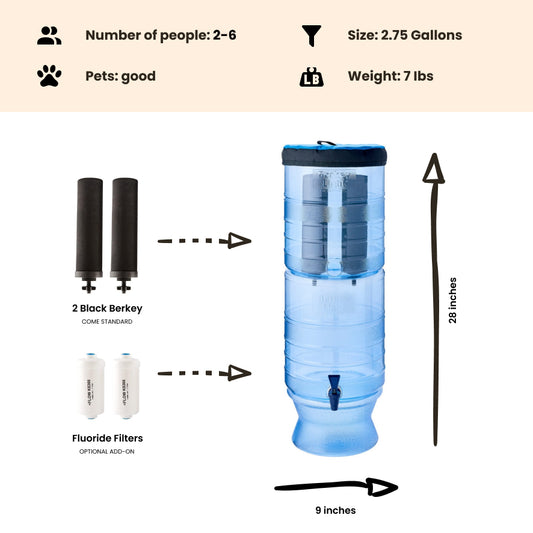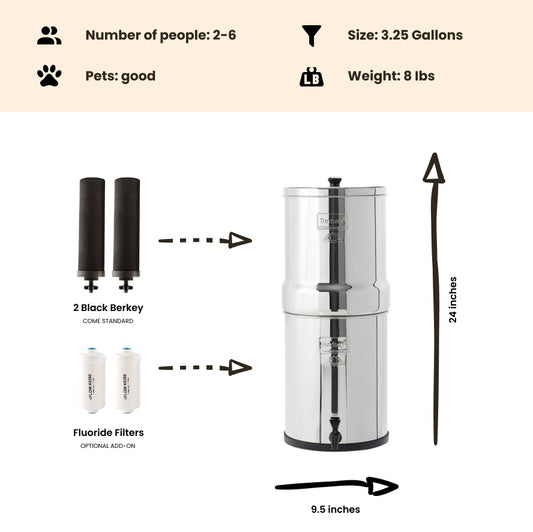
Thirsty Business: What Causes Our Thirst
By Dan DeBaunShare
Scientists discover the mechanism in the human brain that controls body temperature and hydration.
A team of researchers from Duke University and the Research Institute of the McGill University Health Centre (RI-MUHC) have unraveled how the human brain is able to determine when our bodies are becoming dehydrated and how it prevents the body from dehydrating by identifying a key protein that is thought to control body temperature and hydration.
Their findings, which could potentially be used to clinically treat a wide range of health issues associated with an imbalance of body fluids often seen in emergency room situations, were recently published in the scientific journal Cell Reports.
“We have identified what we think is the first protein that could allow the brain to monitor physiological temperature and it is important because this protein contributes to how the brain detects heat and triggers adaptive responses such as thirst,” explains study leader Dr. Charles Bourque, a research scientist in the Medicine Faculty of McGill University and at the Centre for Research in Neuroscience, RI-MUHC. “This protein, which is an ion channel, that regulates the flow of ions across the cell membrane, is thought to play a crucial role in balancing body fluids (water, blood, etc.) and sodium (salts) levels, and changes in its regulation could be involved in linking salt to hypertension, and provoking fluid retention following cardiac failure, sepsis or brain trauma.”
Dr. Bourque and his team are researching how the human brain maintains the balance of salt and water concentrations in body fluids as they moving through membranes — a process known as osmoregulation. Any changes in osmoregulation can cause health problems in humans. Sodium, for example, plays an vital role in regulating water content within our bodies; consequently high levels of salt can damage the kidneys and cause high blood pressure.
An imbalance in body fluids, such as hyponatremia — a condition that results when blood sodium levels drop to abnormally low levels, is one of the more common reasons that patients admitted to an emergency room are hospitalized, says Dr Bourque. Sodium plays an important role in regulating the water content within and surrounding the cells in our body. When sodium levels drop, it causes water levels within the body to rise, which in turn causes brain cells to swell, resulting in symptoms such as headaches, nausea and vomiting. This condition is very common in older adults, where it can cause cognitive changes or even seizures.
The discovery of this protein’s structure will help the scientists better understand the role played by this ion channel in hyponatremia and other medical conditions, and give them tools to make modifications to the channel to treat or prevent the condition, says lead author, Christian Zaelzer, a Postdoctoral Fellow at the RI-MUHC.
According to Dr Wolgang Liedtke, an associate professor of neurology, anesthesiology and neurobiology at Duke University, who collaborated with Dr Bourque and his team on the investigation, this ion channel activates when dehydration sets in, turning on neurons in the brain’s hypothalamus — the part of the brain that tells the body to take action to maintain the body’s fluid balance. It uses two mechanism to achieve this: 1) It triggers a sensation of thirst to encourage a person to increase fluid intake; and 2) by secreting vasopressin — a hormone that has antidiuretic properties that promotes water retention in the kidneys, which maintains body-fluid balance.
Journal Reference:
Cristian Zaelzer, Pierce Hua, Masha Prager-Khoutorsky, Sorana Ciura, Daniel L. Voisin, Wolfgang Liedtke, Charles W. Bourque. ΔN-TRPV1: A Molecular Co-detector of Body Temperature and Osmotic Stress. Cell Reports, 2015; 13 (1): 23 DOI: 10.1016/j.celrep.2015.08.061
-
Regular price From $302.00 USDRegular priceUnit price / per
-
Regular price $234.00 USDRegular priceUnit price / per
-

 Sold outRegular price From $305.00 USDRegular priceUnit price / per
Sold outRegular price From $305.00 USDRegular priceUnit price / per -
Regular price $327.00 USDRegular priceUnit price / per
-
Regular price From $367.00 USDRegular priceUnit price / per
-
Regular price From $408.00 USDRegular priceUnit price / per
-
Regular price From $451.00 USDRegular priceUnit price / per

Dan DeBaun
Dan DeBaun is the owner and operator of Big Berkey Water Filters. Prior to Berkey, Dan was an asset manager for a major telecommunications company. He graduated from Rutgers with an undergraduate degree in industrial engineering, followed by an MBA in finance from Rutgers as well. Dan enjoys biohacking, exercising, meditation, beach life, and spending time with family and friends.
~ The Owner of Big Berkey Water Filters
















